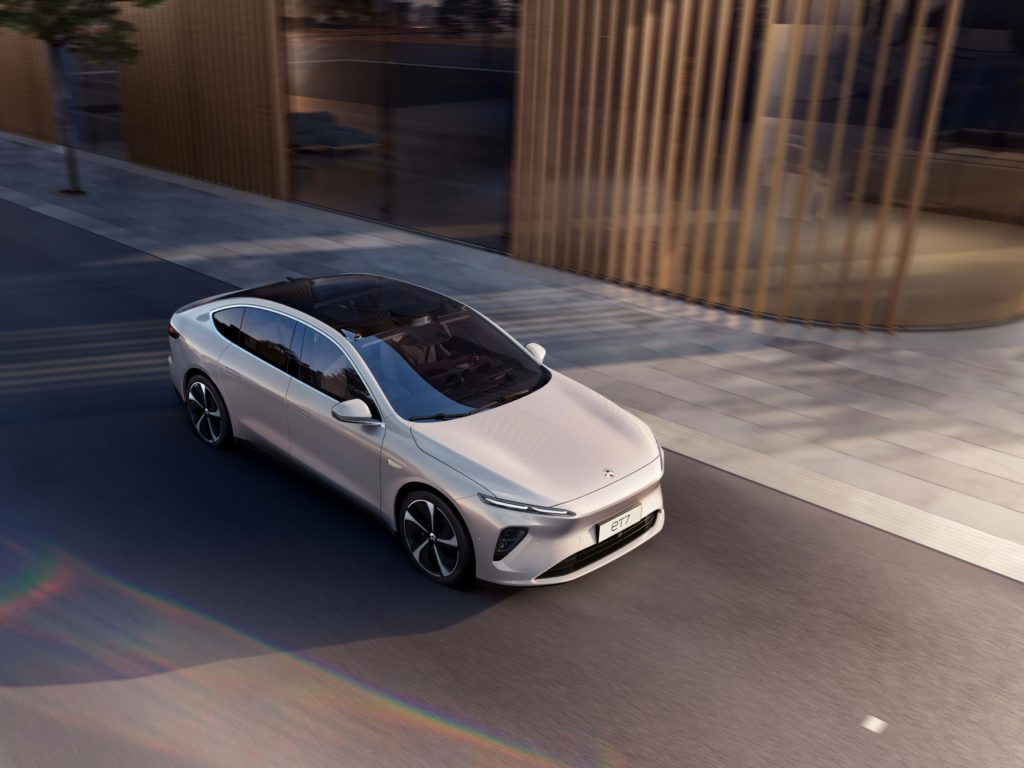Polestar to go public at $20 billion with new backer
28 September 2021

Premium electrically-chargeable vehicle (EV) maker, Polestar, has set a course to go public on the Nasdaq stock exchange in the US. A combination with the special-purpose acquisition company (SPAC), Gores Guggenheim, will enable the public listing.
The deal with the ‘blank-cheque company’ values the Volvo spin-off at roughly $20 billion (€17 billion). Funds raised will help Polestar launch three new battery-electric vehicles (BEVs) by 2024 and increase its global market presence.
Volvo will invest an additional $600 million in the luxury EV brand and should retain roughly half of the company. Meanwhile, Gores Guggenheim will invest $800 million and $250 million will be raised through private investment in public equity (PIPE). These PIPE funds come from the sale of shares below the current market value, allowing the issuer to raise capital quickly.
‘Volvo Cars is a proud and supportive shareholder in Polestar, which we founded and have helped develop since its launch as an electric vehicle company in 2017,’ said Håkan Samuelsson, chief executive of Volvo Cars and chairman of Polestar. ‘The estimated valuation for Polestar reflects the exciting growth potential in electric vehicles, where we see sharply increased demand.’
Blank cheque company
‘This is a really exciting time for Polestar. With two award-winning cars on the road today in 14 active markets across three continents, we seek to expand to 30 markets by 2023,’ said Thomas Ingenlath, CEO of Polestar. ‘We are thrilled about the targeted addition of three new premium electric cars to our line-up by 2024, starting with our first SUV expected in 2022.’
Polestar’s combination is expected to close in the first half of 2022, subject to the approval of Gores Guggenheim’s stockholders and other customary conditions. Once this is confirmed, the new company will be named ‘Polestar Automotive Holding UK Limited’ and listed under the ticker ‘PSNY’.
‘SPACs are en vogue and an excellent opportunity to raise capital,’ said Dr Christof Engelskirchen, chief economist of Autovista Group. ‘They may appear simpler and less risky to manage through than an initial public offering (IPO), but the management and governance challenges for any public company are highly demanding, nevertheless.’
Future proof
This SPAC puts Polestar on a similar path to EV makers like Fisker, Canoo, and Lucid Motors. Shell investment companies like Gores Guggenheim help raise funds, enabling a privately-owned company to list publicly. As reverse mergers, these deals mean members can market financial projections to investors.
This is attractive to EV startups, which can require sizable investments in their early stages of development, allowing them to take designs from the drawing board into reality. But as Polestar executives were keen to point out in an investor conference call, this is not the case for their company. Already established with two models, production know-how from Volvo and market presence, the company hopes new capital raised will not initiate growth but rather accelerate it.
‘In Alec and the Gores Guggenheim team, we have found a partner with an impressive track record of bringing leading companies to the public markets,’ Ingenlath said. ‘The proposed business combination and listing position Polestar as a financially strong, future proof, global electric-car company. It will enable us to accelerate our growth, strategy and most importantly, our mission towards sustainable mobility.’
Breaking down investments
Founded back in 2017 by Volvo and Geely, Polestar already operates in 14 markets across three continents with two models, the Polestar 1 and 2. Capital raised by the merger is expected to help the premium EV maker expand its presence to 30 markets over the next two years. Currently, the brand sells around 10,000 units annually, which it hopes to increase to approximately 290,000 by 2025.
To help it achieve this, Polestar will launch three new cars within the next three years. This is set to include two BEV SUVs, the Polestar 3 and Polestar 4. The former is scheduled for unveiling next year and is set to compete with the Porsche Cayenne, which only has a plug-in hybrid (PHEV) as an electrified option. The latter, a ‘sporty SUV coupe,’ will come about in 2023 at a lower price point below. The Polestar 5 will then enter production in 2024, hitting the roads in 2025. Lastly, the brand hopes to develop a climate-neutral car by 2030.
‘I had the privilege of seeing the line-up of upcoming models, and the cars represent best-in-class innovation and industry-leading design that set the brand apart,’ said Alec Gores, chairman and CEO of the Gores Group and chairman of Gores Guggenheim. ‘Driven by an incredible leadership team with Thomas at the helm, Polestar is well-positioned to capitalise on this exciting and dynamic time for car manufacturers.’



